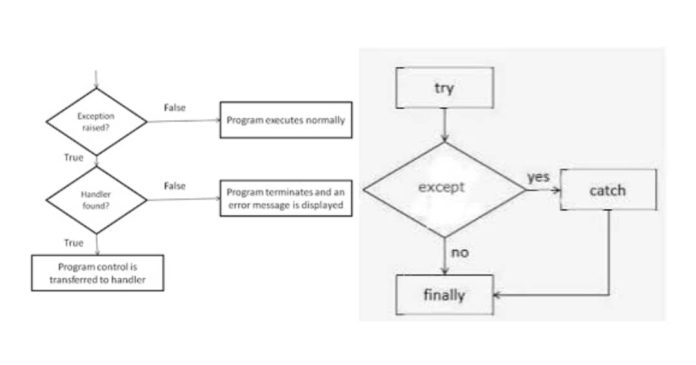Python Exception Handling allows you to manage errors in a controlled way, ensuring that your program runs smoothly even when unexpected conditions occur. It uses the try, except, else, and finally blocks to catch and handle exceptions.
Syntax:
python
try:
# Code that may raise an exception
except ExceptionType as e:
# Handle the exception
else:
# Code to run if no exception occurs
finally:
# Code that always runs (optional)
Example:
python
try:
x = 10 / 0 # Dividing by zero will cause an exception
except ZeroDivisionError as e:
print(f”Error: {e}”)
else:
print(“No errors occurred”)
finally:
print(“This will always execute”)
Output:
Error: division by zero
This will always execute
Benefits:
– Prevents crashes: Catches errors without halting execution.
– Improves code clarity: Helps handle specific errors more gracefully.
– Flexibility: The finally block ensures cleanup after execution.


